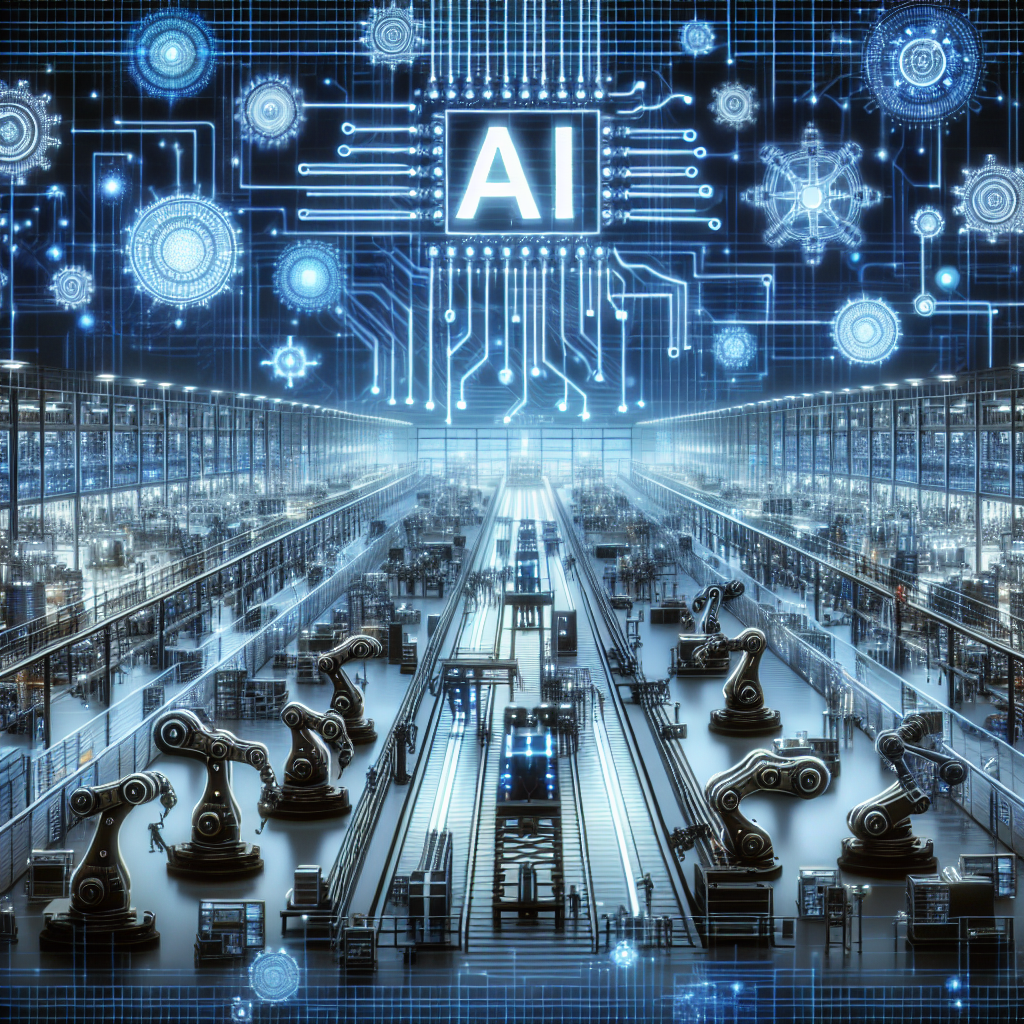Artificial Intelligence (AI) and Autonomous Manufacturing Systems are revolutionizing the way products are made in industries around the world. These technologies are driving efficiency, productivity, and innovation in manufacturing processes, leading to higher quality products and reduced costs. In this article, we will explore the key concepts of AI and Autonomous Manufacturing Systems and how they are reshaping the future of manufacturing.
What is AI?
AI refers to the simulation of human intelligence in machines that are programmed to think and learn like humans. AI technologies enable machines to perform tasks that typically require human intelligence, such as visual perception, speech recognition, decision-making, and language translation.
In the manufacturing industry, AI is being used to optimize processes, improve quality control, and enhance overall production efficiency. AI-powered systems can analyze vast amounts of data in real-time, identify patterns and trends, and make decisions to optimize manufacturing operations. This enables manufacturers to achieve higher levels of productivity, reduce waste, and deliver products with greater precision and consistency.
What are Autonomous Manufacturing Systems?
Autonomous Manufacturing Systems are advanced manufacturing systems that leverage AI technologies to operate independently without human intervention. These systems are designed to perform a wide range of manufacturing tasks, from assembly and material handling to inspection and quality control, with minimal human oversight.
Autonomous Manufacturing Systems are equipped with sensors, actuators, and AI algorithms that enable them to perceive and interact with their environment, make decisions, and adapt to changing conditions in real-time. These systems can optimize production schedules, adjust machine settings, and address issues proactively to ensure smooth and efficient manufacturing operations.
Benefits of AI and Autonomous Manufacturing Systems
There are several key benefits of AI and Autonomous Manufacturing Systems that are driving their adoption in the manufacturing industry:
1. Increased productivity: AI-powered systems can optimize production processes, reduce downtime, and improve overall efficiency, leading to higher levels of productivity and output.
2. Improved quality control: Autonomous Manufacturing Systems can perform real-time quality inspections and identify defects or anomalies before they impact the final product, ensuring higher quality standards.
3. Reduced costs: By automating repetitive tasks and optimizing production processes, AI and Autonomous Manufacturing Systems can help manufacturers reduce labor costs, minimize waste, and improve resource utilization.
4. Enhanced flexibility: Autonomous Manufacturing Systems can adapt to changing production requirements and dynamically adjust operations to meet demand fluctuations, enabling manufacturers to respond quickly to market changes.
5. Enhanced safety: By automating hazardous or physically demanding tasks, AI and Autonomous Manufacturing Systems can improve worker safety and reduce the risk of accidents in the manufacturing environment.
Challenges and Considerations
While AI and Autonomous Manufacturing Systems offer significant benefits, there are also challenges and considerations that manufacturers need to address when implementing these technologies:
1. Data security: AI systems rely on vast amounts of data to operate effectively, which raises concerns about data privacy, security, and compliance with regulations such as GDPR.
2. Workforce transformation: The adoption of AI and Autonomous Manufacturing Systems may require reskilling or upskilling of the existing workforce to operate, maintain, and interact with these advanced technologies.
3. Integration with existing systems: Integrating AI and Autonomous Manufacturing Systems with legacy systems and equipment can be complex and may require significant investment in technology and infrastructure.
4. Regulatory compliance: Manufacturers need to ensure that AI and Autonomous Manufacturing Systems comply with industry regulations and standards to ensure product quality, safety, and traceability.
FAQs
Q: How can manufacturers get started with AI and Autonomous Manufacturing Systems?
A: Manufacturers can start by conducting a thorough assessment of their current manufacturing processes, identifying areas where AI and autonomous technologies can add value, and developing a roadmap for implementation. It is also important to engage with technology partners and experts to ensure a successful transition to AI-powered manufacturing.
Q: What are some examples of AI applications in manufacturing?
A: AI applications in manufacturing include predictive maintenance, quality control, demand forecasting, supply chain optimization, and robotic process automation. These applications enable manufacturers to improve operational efficiency, reduce costs, and deliver products with higher quality and precision.
Q: How can manufacturers ensure the security of their data when using AI and Autonomous Manufacturing Systems?
A: Manufacturers can implement robust data security measures, such as encryption, access controls, and regular audits, to protect sensitive information and ensure compliance with data privacy regulations. It is also important to work with trusted technology providers who prioritize data security and have established protocols for data protection.
Q: What are the key considerations for manufacturers when integrating AI and Autonomous Manufacturing Systems with existing systems?
A: Manufacturers need to ensure that AI and Autonomous Manufacturing Systems are compatible with existing systems and equipment, have the capacity to handle the volume of data generated, and can seamlessly communicate with other systems in the manufacturing environment. It is also important to conduct thorough testing and validation to ensure the smooth integration of these technologies.
In conclusion, AI and Autonomous Manufacturing Systems are transforming the manufacturing industry by driving efficiency, productivity, and innovation. These technologies offer significant benefits, such as increased productivity, improved quality control, reduced costs, enhanced flexibility, and enhanced safety. However, manufacturers need to address challenges such as data security, workforce transformation, system integration, and regulatory compliance when implementing AI and Autonomous Manufacturing Systems. By overcoming these challenges and embracing the potential of these technologies, manufacturers can gain a competitive edge and drive success in the rapidly evolving manufacturing landscape.

